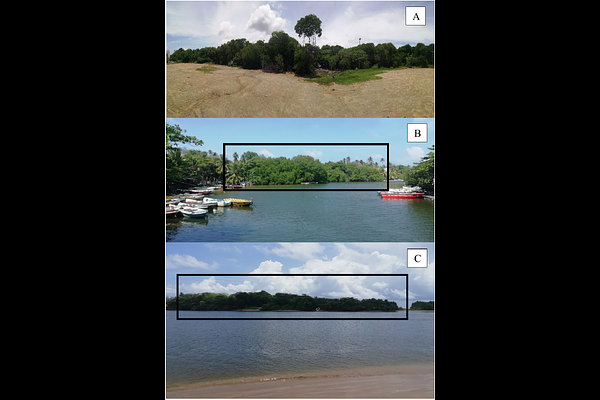Isolation and Characterization of Salt Tolerant Soil Bacteria from Selected Locations in the West Coast of Sri Lanka.

Isolation and Characterization of Salt Tolerant Soil Bacteria from Selected Locations in the West Coast of Sri Lanka.
Senarath, N. G. L. C.; Edirisinghe, R.; Senarath-Yapa, M. D.; Hemachandra, I. P. A.; Somaratne, Y.; Jayawardana, N. U.
AbstractSoil salinity is one of the inherent problems in coastal soils. Increased soil salinity in coastal soils results in low bacterial diversity. However the salt tolerant bacteria have the ability to survive in saline soils because of their unique salt tolerant mechanisms. The current study was focused on identifying salinity tolerant bacteria in the West coast of Sri Lanka. Four soil samples each were collected from three locations namely Negombo lagoon, Balapitiya coastal area and Beruwala coastal area. From 12 soil samples 20 bacterial isolates were obtained namely NE01 to NE09 (Negombo lagoon), BA01 to BA07 (Balapitiya coastal area) and BE01 to BE04 (Beruwala coastal area). The isolates were characterized based on bacterial colony morphology, Grams stain and biochemical tests namely catalase test, modified oxidase test, hemolytic reaction on blood agar and growth on MacConkey agar. All the bacterial isolates were screened for salt tolerance at different concentrations of NaCl ranging from 3 dS/m to 18 dS/m. All 20 bacterial isolates were found to be salt tolerant upto the highest NaCl concentration tested (18 dS/m). The salinity tolerance behavior of selected five isolates were observed by enumerating the number of colony forming units per milliliter (CFU/mL) with increasing salinity. Molecular identification of these five isolates were carried out by sequencing the 16S rRNA gene. It is recommended to screen the identified salt tolerant bacterial isolates for their plant growth promoting rhizobacterial (PGPR) activities such as phosphate solubilization, indole acetic acid and ammonia production. The findings reveal a potential of using these isolates through biotechnological applications with the aim of increasing the productivity of saline affected soils of Sri Lanka. Key words: 16S rRNA, Balapitiya, Beruwala, Negombo, Salt tolerance, Soil salinity